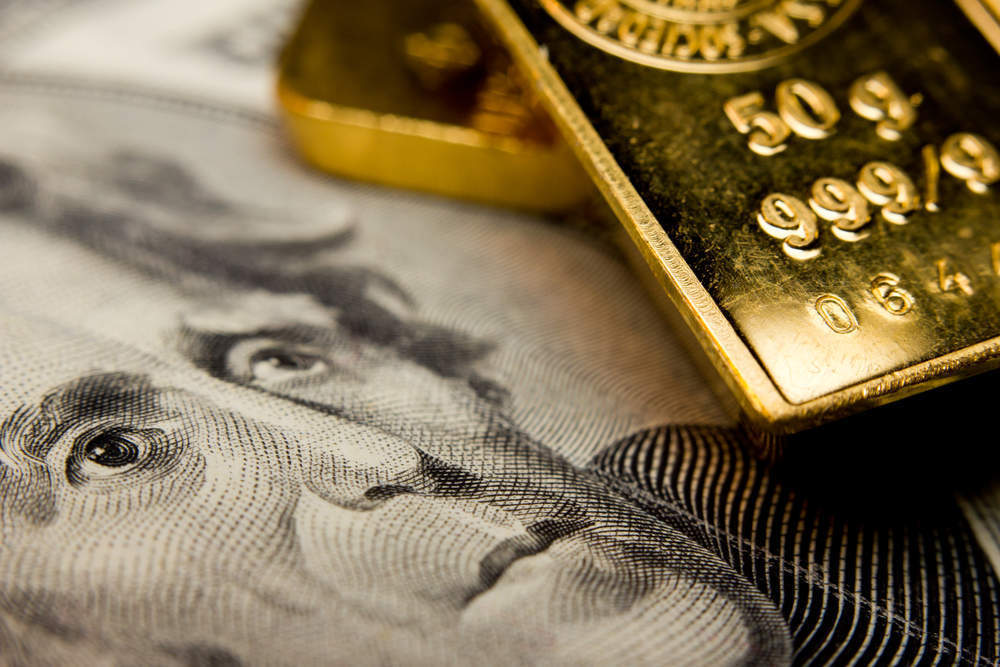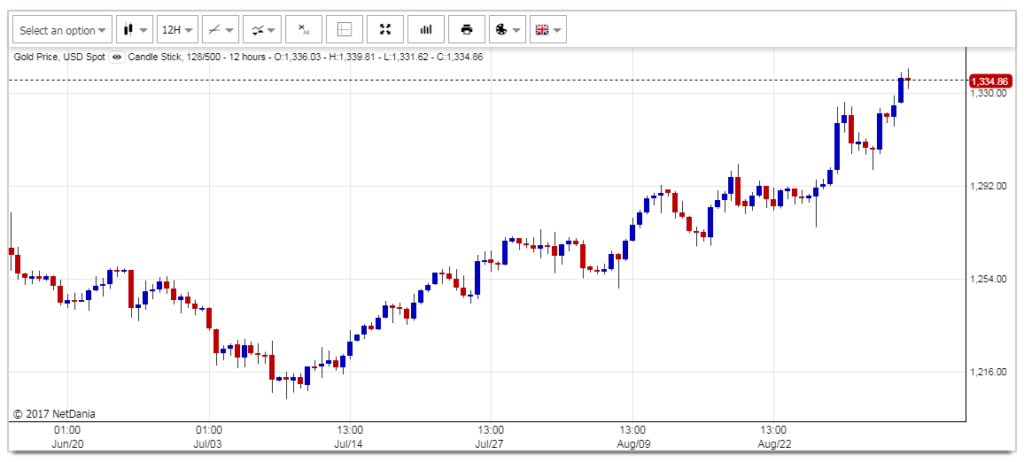
Gold prices inched closer to a one-year high this morning after North Korea tested a nuclear bomb over the weekend, spooking global investors.
Fears were then enhanced in early trading after the South said it had seen signs the North was preparing further missile tests. Gold rose as much as one percent, trading at the highest levels since September 2016, while the yen also climbed as much as 0.9 percent.
Yesterday the country said it had conducted a significantly larger hydrogen-bomb test than seen before.
In a televised statement, North Korea described the underground explosion, which triggered a large earthquake, as a “perfect success in the test of a hydrogen bomb for an ICBM”.
The creditability of the operation of the nuclear warhead is fully guaranteed.
That test followed North Korea leader Kim Jong Un showing off what he described as a hydrogen bomb capable of being mounted on an intercontinental ballistic missile.
The Japanese yen, gold and sovereign bonds all rose. Gold tends to rise in times of crisis as traders seek safe havens.

Japan is the world’s largest creditor nation and traders tend to assume Japanese investors would repatriate funds at times of crisis, thus pushing up the yen.
Many wonder, however, if Japanese assets would really remain in favour if an actual war broke out in Asia.
Mike van Dulken, head of research at Accendo Markets, said:
Gold is once again the major beneficiary as tensions in the Korean peninsula reach fever pitch once again, which has seen investors flock to safe haven assets. The precious metal is trading around $1337.5/troy oz., the high it touched on the night of the US election back in November, having completed a 2-day bullish flag pattern from $1300. Expect North Korean rhetoric to heavily influence the safe haven asset throughout the day as global leaders react to the latest provocations.
Investors were also looking ahead to a European Central Bank (ECB) meeting on Thursday.
Markets are expecting no policy change from the ECB this month but the bank is likely to announce a reduction of its monthly asset purchases in October, according to a majority of economists in a Reuters poll.
That comes after a the latest US non-farm payrolls showed employers added fewer jobs in August than expected, meaning traders held to expectations that the Federal Reserve would wait until the middle of 2018 before raising rates.
Gold is highly sensitive to rising interest rates, as these increase the opportunity cost of holding non-yielding bullion, while boosting the greenback.







